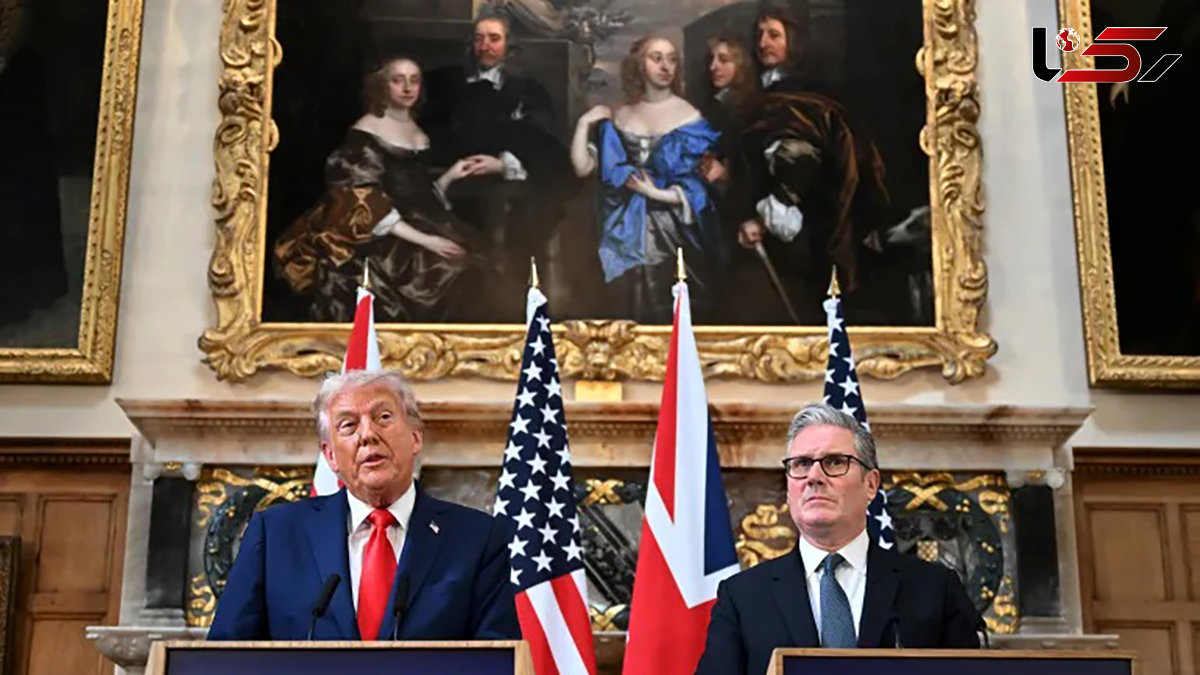Trump Waging Culture War on Europe by Promoting Rightwing Allies, Report Finds
Rokna Political Desk: A joint report by the European Council on Foreign Relations (ECFR) and the European Cultural Foundation concludes that former U.S. President Donald Trump is waging a culture war on Europe by promoting right-wing allies, interfering in elections, and challenging the EU on the global stage. The study warns that Europe itself has become the target of this ideological campaign.

According to Rokna, citing The Guardian, a joint report by the European Council on Foreign Relations (ECFR) and the European Cultural Foundation concludes that the Trump administration is waging a culture war on Europe by aggressively promoting the political and ideological allies of the MAGA movement across the continent and publicly humiliating the European Union on the global stage.
The study argues that the former U.S. president is actively seeking to interfere in European elections, transform transatlantic relations toward conservative values, and rally Europe’s rightwing populists around the theme of free speech. According to the report, EU leaders’ divisions, hesitations, and “flatter, appease, distract” approach to dealing with Trump have only encouraged such behavior.
Using research and polling from all 27 EU member states, the report notes that enough countries have pro-European governments and that European public sentiment is strong enough for the bloc to stand up and “defend a Europe that writes its own script.” The study likens Europe’s position to the central character in The Truman Show, who eventually realizes he is in a television series whose only priority is boosting its ratings and must decide whether to leave the comfort of the only reality he knows.
The report states that EU leaders expend excessive energy reacting to crises scripted by Trump and his European allies, including Viktor Orbán in Hungary, Giorgia Meloni in Italy, and Robert Fico in Slovakia, ranging from tariff threats and free speech disputes to security spending and migration scares.
“In Trump’s culture war, Europe itself is the target,” said Pawel Zerka of ECFR, pointing to JD Vance’s February 2025 accusation that Europe was “retreating from fundamental shared values” as the moment the culture war was openly declared. Vance’s speech at the Munich Security Conference revealed Washington’s intent to interfere in elections, frame U.S.-EU relations as a “values divide,” and make free speech a rallying call for parties supporting the MAGA cause in Europe, Zerka added.
Trump has further revealed his strategy by excluding EU leaders from discussions on Ukraine’s future, attacking mainstream political parties across the continent, and pressuring Brussels institutions during trade negotiations. Poland is cited as an example, where Trump attempted to “move the ideological centre of gravity of Europe’s politics” by welcoming nationalist presidential candidate Karol Nawrocki to the White House and boosting him on social media. The report also mentions U.S. State Department staffer Samuel Samson’s appeal to “civilizational allies in Europe,” labeling the continent a “hotbed of digital censorship, mass migration, restrictions on religious freedom, and other assaults on democratic self-governance.”
Zerka emphasizes that the culture war operates on two levels: an ideological conflict over the values underpinning European politics and a struggle for Europe’s dignity, credibility, and identity as an autonomous actor on the global stage. He stressed that Brussels and national capitals must recognize that they are in a culture war with Europe as the target and act accordingly.
“This does not mean Europe should provoke Trump at every turn. Sometimes buying time is necessary,” Zerka said. However, by leveraging its strengths, the bloc can “thrive rather than suffer in a world order destabilized by the U.S. president.”
The report suggests conditions are ripe for European leaders to step off Trump’s “film set.” Polling indicates strong European sentiment regarding a shared space, future, and values. Eurobarometer data shows citizen trust in the EU is at its highest since 2007, rising in 12 countries—most sharply in Sweden, France, Denmark, and Portugal—since Trump’s return to the White House. Majorities in nearly all member states feel attached to the EU, and only a few parties express a desire to leave. In all but three countries (Romania, Poland, and the Czech Republic), citizens assert that the EU’s role in protecting Europeans from global crises and security threats should grow in importance.
ECFR polling from May further highlights widespread support for increased European defense spending and military autonomy from the U.S., alongside growing awareness that Europe and the U.S. represent “two different models of democracy.” While the picture is not uniform across the continent, Zerka warns that no member state will escape the culture war’s impact, urging even Eurosceptic leaders to recognize that the EU is “the only framework in which they can protect national sovereignty and prosperity.”
National leaders are advised to reject flattery as a strategy toward Trump, even if it risks increasing transatlantic tensions. The European Commission “must be bold” in deploying instruments such as the Digital Services Act and trade tools.
“‘It’s culture, stupid!’ urgently needs to enter the mindset of European leaders,” said André Wilkens of the European Cultural Foundation. “European sentiment is not abstract utopianism. It reflects real feelings for Europe and Europeans’ readiness to fight for them.”
Send Comments